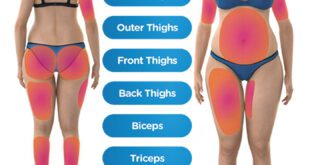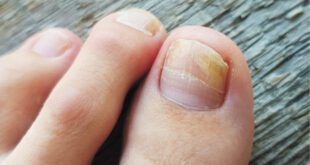Ah, warmer weather is here, bringing blossoms, lush greenery, and seasonal eye allergies. Pollen from flowers, trees, grasses and weeds can irritate and inflame your eyes, often so severely that your comfort, and even activities like driving and playing sports, may be significantly impaired.
Let’s talk about how to recognize the symptoms of seasonal eye allergies, and review ways to alleviate these symptoms so you can get back to enjoying life.
SYMPTOMS OF SEASONAL EYE ALLERGIES
1. Redness. When allergens inflame the blood vessels of the eyes, they can become red and bloodshot.
2. Itching. Allergies cause histamines to be released, creating itching. Scratching this maddening itch can worsen the problem, and invite further eye irritation, even infection.
3. Weepy, Watery Eyes. As the eyes try to flush out allergens, they may water excessively, which can impact vision.
4. Gritty Sensation. Allergens can cause eyes to feel dry, gritty or like foreign bodies are present.
5. Swollen Eyelids. Irritation of the eyelids may cause them to swell, get puffy or bag, or become red.
RELIEVING SYMPTOMS OF SEASONAL EYE ALLERGIES
So, what can we do to help our eyes deal with Nature’s abundance of pollen? Here are some reliable ways to help soothe red, weepy, irritated eyes.
1. Avoid Allergen Exposure. Whenever possible, try to avoid the sources of allergic responses, especially activities like mowing the lawn (yay!) or golfing (boo). Keep home, office and car windows closed, especially on days with high pollen counts. Wearing sunglasses, particularly those that wrap around the face, can help limit pollen exposure. At-home air purifiers may help remove allergens from your living areas.
2. Practice Good Eye Hygiene. Always wash your hands thoroughly before touching your eyes, and avoid rubbing them. When needed, gently rinse out eyes with a sterile rinsing solution or distilled water. After going outside, wash your face and eyelids with a gentle cleanser. If possible, remove contact lenses, as they can trap allergens, and wear glasses until the pollen count is low. It’s also smart to wash bedding, vacuum and dust regularly.
3. Cold Compresses. Applying a clean cloth dampened with cold water for 10-15 minutes can help soothe irritated eyes and reduce eyelid swelling. Or, make a cold compress by wrapping a thin, clean towel around a bag of frozen peas or crushed ice.
4. Over-the-counter Medications. OTC eye drops come in a variety of forms, including antihistamine eye drops, which address redness and itching, lubricant eye drops, which provide moisture and help flush out irritants, and decongestant eye drops, which constrict blood vessels to address redness. Decongestant eye drops should be used only for short periods of time and are not suitable for everyone. If you have any eye conditions, it is wise to talk to your eye doctor before using this type.
5. Oral Antihistamines. OTC medicines like cetirizine (Zyrtec) or loratadine (Claritin) not only address nasal symptoms, but can also provide relief from eye allergy symptoms.
6. Prescription Medications. If the above suggestions don’t provide sufficient relief, talk to your eye doctor about prescription medications, including antihistamines and corticosteroid eye drops, to help cease eye allergy symptoms.
ARE EYE ALLERGIES EVER A CAUSE FOR CONCERN?
While most allergic reactions of the eye are temporary and merely irritating, they can sometimes be a cause for concern, particularly if symptoms are severe, persistent or unusual. See your eye doctor as soon as possible if you experience the following:
1. Severe Symptoms. Severe redness, itching, swelling and/or pain may indicate a more serious allergic reaction or infection.
2. Persistent Symptoms. If symptoms persist for several weeks despite using over-the-counter remedies, it’s important to get a thorough evaluation to rule out other conditions, such as dry eye syndrome, blepharitis, or conjunctivitis.
3. Changes in Vision. Changes such as blurriness or double vision should be promptly evaluated to rule out a more serious problem.
4. Discharge. Thick, yellow or green discharge may be a sign of infection.
5. Light Sensitivity. Unusual sensitivity to light (photophobia) may be a symptom of a more severe eye condition and should be addressed by your doctor.
6. Headaches/Facial Pain. These symptoms can indicate a condition such as sinusitis, which requires medical treatment.
7. Systemic Allergic Reactions. If eye allergy symptoms are just part of a more extensive allergic reaction, such as hives, swelling of the face and throat, or difficulty breathing, seek emergency medical care immediately.
POTENTIAL COMPLICATIONS FROM UNTREATED ALLERGIES
While some try to “gut it out” instead of treating eye allergies, ignoring symptoms may lead to eye health complications, such as:
. Risk of Infection: Persistent eye rubbing can introduce bacteria into the eye, increasing the risk of infections like conjunctivitis (pink eye).
. Chronic Inflammation: Stubborn inflammation can cause damage to the eye’s surface and lead to conditions like keratitis (a corneal ulcer), the most common cause of infection-related corneal blindness.
. Corneal Damage: Rubbing and scratching eyes can damage the cornea, potentially leading to scarring and vision impairment.
If you’re having symptoms of eye allergies, don’t ignore them. Eyes are strong but delicate, and need tender loving care to function at their best.
WHEN TO SEE AN EYE CARE PROFESSIONAL
If your symptoms continue despite trying over-the-counter treatments, or if you experience chronic or severe redness or discomfort, it’s important to see your ophthalmologist or optometrist, who will perform a comprehensive evaluation of your condition, and recommend the appropriate treatments and interventions tailored to suit your eyes, medical profile and lifestyle.
By knowing the signs of seasonal eye allergies and taking practical steps to alleviate them, you can enjoy clearer, more comfortable vision, even during allergy season.
LAKE EYE FOR EYE ALLERGY RELIEF
If you’re experiencing red, itchy, watery eyes, contact your local Lake Eye (a US Eye Company). With the region’s latest and most advanced eye care services, we’re here to help you make the most of the spring and summer seasons. With six state-of-the-art locations, there’s a Lake Eye office near you.
352-632-2020
 Central Florida Health and Wellness Magazine Health and Wellness Articles of the Villages
Central Florida Health and Wellness Magazine Health and Wellness Articles of the Villages



